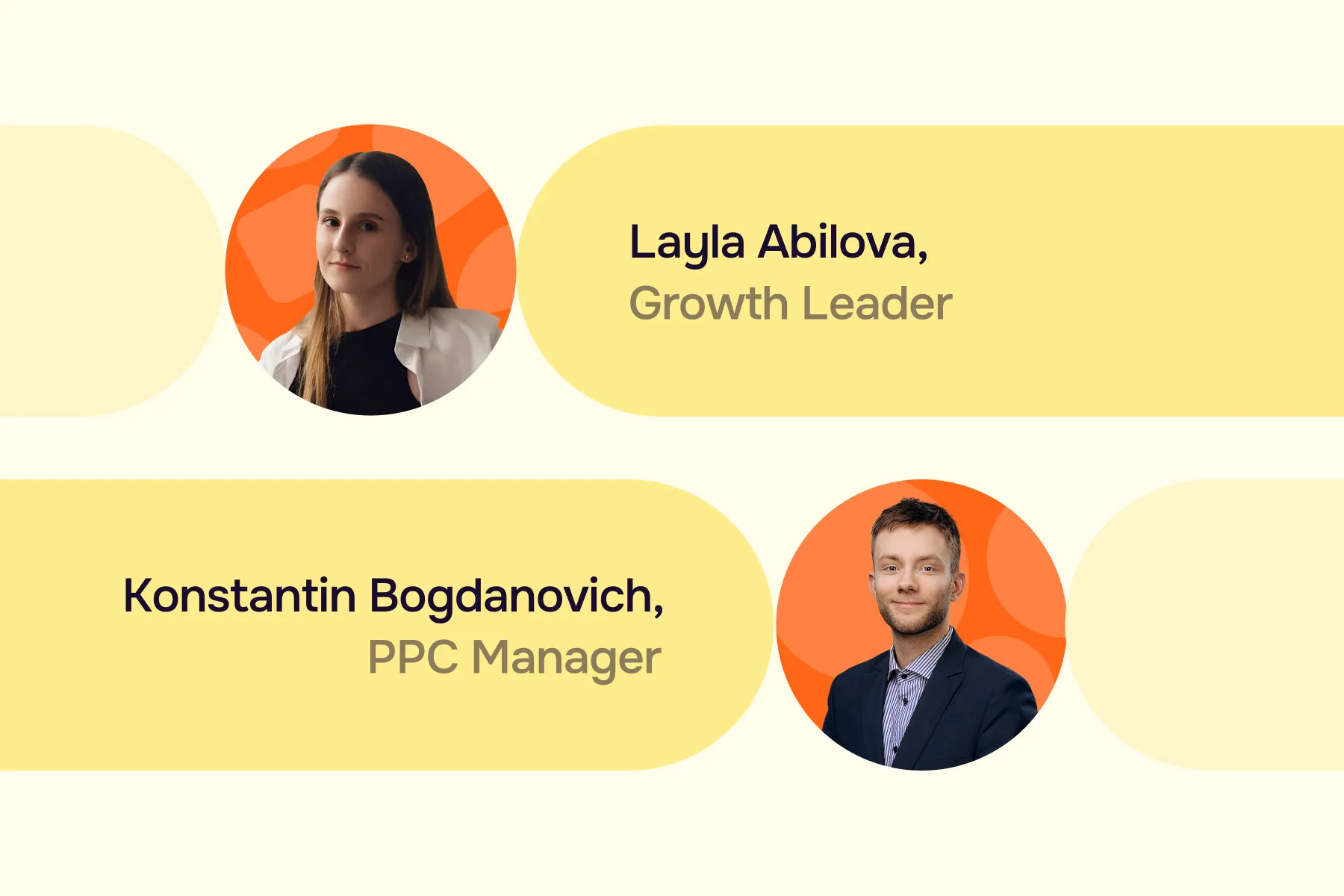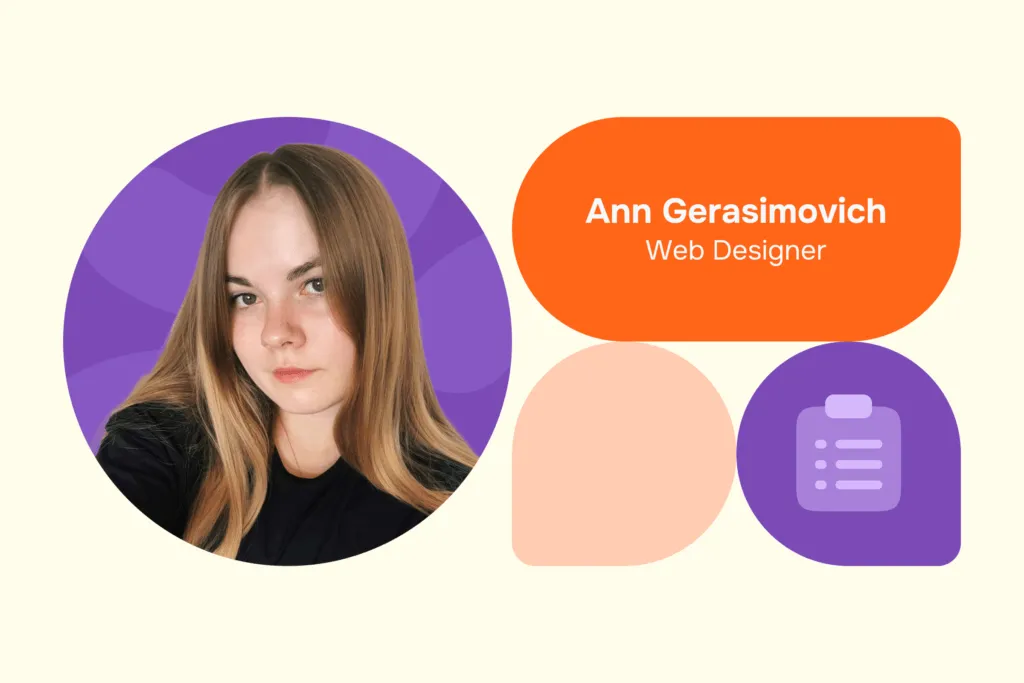PPC for Small Business: Maximizing Visibility and Revenue

Pay-Per-Click (PPC) advertising is a real goldmine for small businesses. It allows to increase visibility on search engines such as Google, Bing, and social platforms like Facebook. Ultimately, it means more sales and more revenue for you.
It provides businesses with a cost-effective model to drive targeted traffic straight to the website via click-throughs on their ads. This is what makes PPC for small businesses an indispensable tool in their digital marketing arsenal. It assures quick results, control over one's budget, and the possibility of measuring every bit of the campaign. This is an especially potent advertising model for small businesses within the tech, IT, and SaaS arenas, as small businesses here can go after niche audiences and compete with bigger companies.
However, combining PPC with other digital marketing activities requires expertise and an analytical approach to really make a difference, to get the highest return on investment and quality leads. The complexity and dynamism associated with PPC means that both startups and small businesses, especially in fast-growing fields like technology and SaaS, are in a good position to benefit much by engaging a PPC agency. Partnerships of such kind can create a blend of innovation, strategic management in PPC, and a focus on results because the integration of this channel in the overall marketing mix brings so much practical value for businesses.
Understanding Why PPC Is Important for Small Business
One of the key strategies for a small business, especially in the technology, IT, or SaaS sector, is PPC advertising. This is done to help enhance market presence in a relatively quicker and cost-effective way. Here is a detailed guide to help small business owners get started with PPC campaigns.
Step-by-Step Guide to Starting with PPC Ads
1. Target Your Audience
Use Google's Keyword Planner to define who is after what you have to offer.
2. Set a Budget
Decide what you would like to spend on the PPC ads. Just remember, with PPC, you pay only for click-throughs to your ad.
3. Write Effective Ad Copy
Your ad must be clear, engaging with clear intent, and have a call-to-action.
4. Use the Right Platforms
Show the ads on Google, Bing, or in social media websites if your target customers are there.
5. Run and Track Your Ads
Get the campaign live and keep tracking the performance. Make use of the available analysis tools on the platforms and base your judgments on the data that you gather.
Why Hiring a PPC Agency is Beneficial
- Expertise and Experience. This is one of the areas where agencies really excel. With huge pools of knowledge and experience, agencies ensure that campaigns are set up and optimized for the best performance.
- Time Saving. The truth is that running a PPC campaign can be very time-consuming. An agency can actually go through all the details of the campaign for you while you are busy doing something else.
- Advanced tools and insights. Agencies have access to advanced tools and data insights that can significantly improve how effective your campaigns are.
- Cost-Effective. Yes, it needs some investment for setting up the infrastructure, but if managed properly, campaigns are found to be less costly in the long term and give more ROI over time.
Through an understanding and capitalizing of PPC, small businesses can achieve high visibility and growth rates in a market full of competition. This is owed to the fact that it does not only drive traffic and conversion through the practice but also complements other strategies of digital marketing in order to create a robust online presence.
Your First PPC Campaign
Step-by-Step Guide to Launching Your First PPC Campaign
1. Define your strategy and objectives
Establish parameters by determining your target audience for your campaign, the objective of the campaign, and setting the budget. All goals should be SMART.
Goals and goal metrics are a key design element in the changing strategy process.
2. Select the Right Campaign Type
Look for the various sorts of campaigns: search, display, social, remarketing, or Google Shopping, according to whatever aligns with your business goals.
3. Keyword Research and Selection
Conduct keyword research deep into the theme of your ad group to pick up the right keywords that are very relevant to the theme and solve searchers' intent. Use long-tail keywords for less competition and high relevance.
Implement negative keywords usage so you can skip traffic you're not interested in, and apply local keywords if your business relates to a local market.
4. Ad creation and landing page optimization
Write compelling PPC ad copy with targeted keywords and CTAs that can be acted upon, ensuring your copy language matches that of the landing page.
Make the landing page look nice, clean, and responsive to be relevant with target keywords so that user experience is enhanced, and the conversion rate is increased.
5. Assigning and recording analytics
Install Google Analytics and measure how the website is performing, user interactions, and engagement with the content to see if the PPC campaign is effective.
6. Testing and Adjustments
You should continue with A/B testing on ad copy, landing pages, and keywords to see which varies work best.
You can automatically adjust your bid or ad schedule based on performance data to control your spending and targeting more efficiently.
7. Make use of advanced features and add-ons
Use sitelink extensions to give extra detail that would make your ad stand out, and improve your Ad Rank on the SERP.
8. Continuous Improvement and ROI Maximization
Keep a keen eye on your campaign, optimize it through performance metrics given by Google Analytics, and insights from the PPC platform. Focus on maximization of ROI through further strengthening your targeting strategies and increasing your Quality Score.
In this regard, small businesses in the tech, IT, and SaaS space will have a chance of setting up the first PPC campaign to drive targeted traffic and realize big results. The participation of PPC agencies could be considered for added expertise and resources to make sure campaigns are well executed and to seamlessly integrate with broader strategies in your digital marketing.
Key PPC Management Strategies
Small business requires the best management in PPC to ensure that the paid advertising campaigns have maximum impact. It helps to have these key strategies at hand so you can boost your PPC performance:
Prioritize Detailed Keyword Research
- Use Specific Keywords. Focusing on some specific phrases closely related to your business will get you before targeted, highly interested audiences.
- Utilize Geographic Keywords. Use those location-specific keywords so that your ad appears in front of local people who are most relevant and qualified, and hence you get the maximum ROI on your PPC spend.
- Implement Negative Keywords. Exclude search terms that are irrelevant to prevent wasting your ad spend and to increase the focus of campaigns.
Create Engaging Ad Content
- Catchy Headlines. Headline language that is strong and assertive will interest people and lead to higher click-through rates.
- Calls to Action. Clearly, all ads have to contain simple and evident calls to action that are intended to give the user the next step. Examples for CTAs are "Call Now" and "Visit Our Website".
- Ad Copy Relevance. Make sure the ad copy is relevant to the landing page to drive better conversion.
Optimize Campaign Settings and Extensions
- Bid Management. Adjust the bids to not over-allocate more than necessary and still be visible on important search terms.
- Use ad extensions. Provide further information using the Sitelinks, Callouts, and Structured Snippets to increase the visibility and attractiveness of the ad.
Regular Monitoring and Adjustments
- Performance Monitoring. Keep track of the performance of the campaign constantly, know what works, and what does not work in order to make timely adjustments.
- Quality Score Monitoring. Keep an eye on your quality score, as it affects your ad position and cost per click. You can improve the relevance of your ad and landing pages.
Get PPC Managed by Professionals
- Agency Expertise. A PPC agency should be considered by a small business, especially one that is relatively new to PPC because it will help them run campaigns in an efficient manner. Agencies come with expertise, advanced tools, and strategic insights that can drastically improve campaign outcomes.
These small business strategies implemented in the PPC campaign would make the outcomes better, resulting in a better ROI of the digital marketing effort and making it more effective and competitive in the dynamically online marketplace.
Some of the Common Challenges for Small Businesses When It Comes to PPC
PPC Terminology
Some of the other PPC terms that small business should understand if they have to go for paid advertisement are CPC, and Conversion Rate, which are some basic metrics considered in any success factor of the PPC campaigns. This can also be done through checking the quality score, ad rank, retargeting or remarketing, negative keywords, ad extensions, landing page, impressions, and display network among other terms that determine successful optimization of the campaigns in boosting their performance.
Common Mistakes
It is, however, the small business-specific issues that can, at times, take away from the performance of their PPC campaigns. One of these relates to the tendency to 'set and forget' campaigns, whereby they have been set up and then not monitored or adjusted frequently enough. Making such an error could result in poor expenditure and, in turn, poor campaign performance. One is thus supposed to manage and actively tweak campaigns based on information on their performance.
Other common mistakes are the underestimation of the importance of using negative keywords that will prevent the ad from showing in an irrelevant search. This way, one can save the budget and improve the focus of the campaign, and poor location targeting whereby your ads will be shown to users in places not relevant to the business, hence wasting valuable advertising dollars.
When developing this into a simple landing page, this often seems to be just one area of marketing that businesses overlook the quality of, yet it's crucial to the process of turning visitors into customers. Making the landing page relevant, engaging, and optimized for conversion is a necessary approach to get the most from PPC advertising. Check out our Conversion Rate Optimization service that optimizes your landing page into a super-performer.
However, not understanding the nuances of the platform will lead to advertising platforms not being used optimally and misaligned from what goals are set for the campaign. Specific features and best practices for Google Ads, Bing, and other social media platforms should be learned and effectively applied.
Addressing these common pitfalls and improving understanding of basic PPC terms can greatly enhance the outcomes of PPC campaigns for small businesses in achieving their set marketing objectives much more cost-effectively.
Integrating PPC with Other Digital Marketing Efforts
PPC marketing has always been the measurable and trackable gateway into online marketing. It's been a pivotal part of full-scale digital marketing plans for small businesses, especially in the tech, IT, and SaaS spaces. By combining PPC with other Digital Marketing channels, including SEO, Content Marketing, and Social Media Marketing, small businesses can boost their online presence and, as a result, drive more qualified visits to their websites.
Comprehensive Integration Strategy
- Leverage PPC Data for SEO Insights. Data on the keywords used and user interaction from PPC campaigns can assist in further improvement of SEO strategies. It can disclose keywords that manage to drive good traffic and conversions, thus optimizing the efficiency of organic search endeavors.
- Synchronize content marketing. Align PPC with the content marketing campaign by amplifying the performance of the content through targeted PPC advertisements. This very approach not only enhances the reach of content but also boosts engagement and the conversion rate as well, thanks to the hyper-targeted audience.
- Improved Social Media Impact. One can amplify social media posts and reach new audiences with the use of PPC. Targeted PPC ads could further boost the scope of posts, promoting special offers and driving interaction right into platforms where the organic reach is usually very little.
Benefits of Integrated PPC Campaigns
- Wider Reach of Target Audience. When PPC is blended with other marketing tactics, it enables the businesses to tap into the wider section of their target markets.
- Measurable ROI and Quick Results. Since the PPC campaign can be set up and start running in no time, it's important for small businesses looking to improve their cash flow and growth metrics. It can further the message of marketing across the platforms with its ability to be integrated with other channels.
- Marketing Optimization. The data collected from PPC campaigns would help businesses shape their overall digital marketing strategy by correctly using resources and optimizing results.
By adopting such an integrated approach, small businesses can maximize their marketing efforts, ensuring that each channel complements the others, thereby creating a cohesive and effective marketing ecosystem.
Takeaways:
This in-depth guide has thus far walked you through some of the core steps that small business owners, especially in the tech, IT, and SaaS sectors, need to undertake to get started with a PPC advertising journey. That is, from target identification, budgeting, and ad content creation to choosing the right platforms—maneuvering through PPC at the very crux involves a lot of prior strategic planning and continuous optimization. It has further highlighted substantial benefits associated with working with a PPC agency, which places the great emphasis on the expertise and experience that such agencies bring to not only managing the campaigns but also ensuring that optimization is at its peak performance and ROI.That, coupled with the competitive digital space, makes the potential for PPC advertising the game-changer for a small business with the intention of making an impression online in a faster way. Inclusion of PPC with other digital marketing efforts results in a robust strategy with an eye on effectively driving traffic to improve conversions and, in the long run, foster business growth.
Let us know if you need help starting your PPC ads!
Get in touch with us, and our team will get back to you shortly to make sure you have everything to help your PPC efforts succeed.
FAQs

February 3, 2026

February 2, 2026

July 10, 2024







